Hi dear Hive community,
We have already mentioned in our previous post that we explored a mountain place called Gorkha. Because of it's historical importance, they have made a very interesting museum in former lower palace of the Shah dynasty. At the entrance we needed to pay 200 NPR for a person, and on top of that extra 200 NPR for taking pictures of the museum.
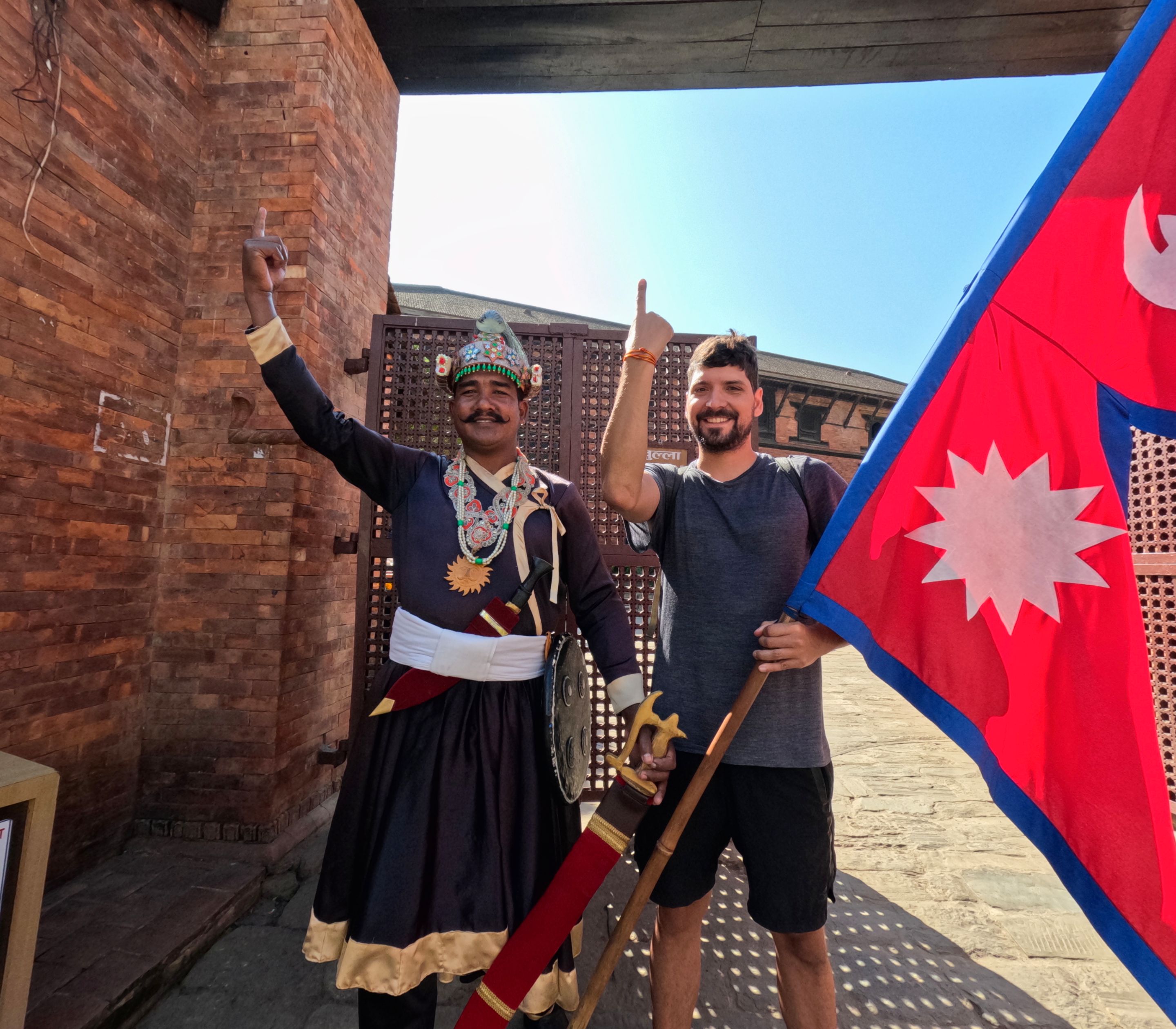
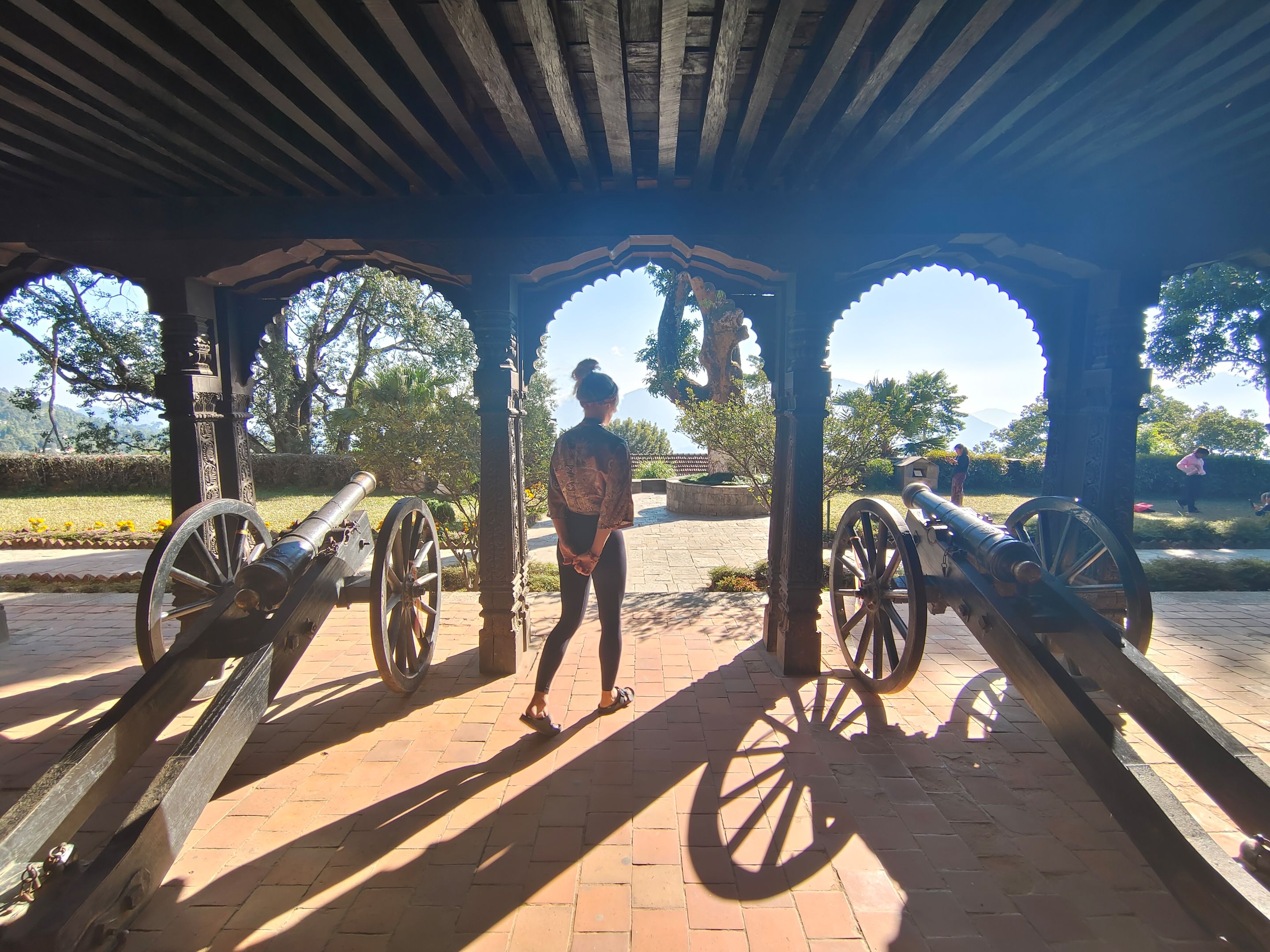
The palace is exactly the same built as Gorkha Durbar, which we went to visit before on the top of the mountains. It's full of wooden carvings and is shaped in a big square. In the surrounding there is also a royal park with many giant people trees. Besides that there is also a statue of one of the kings and a small water fountain.
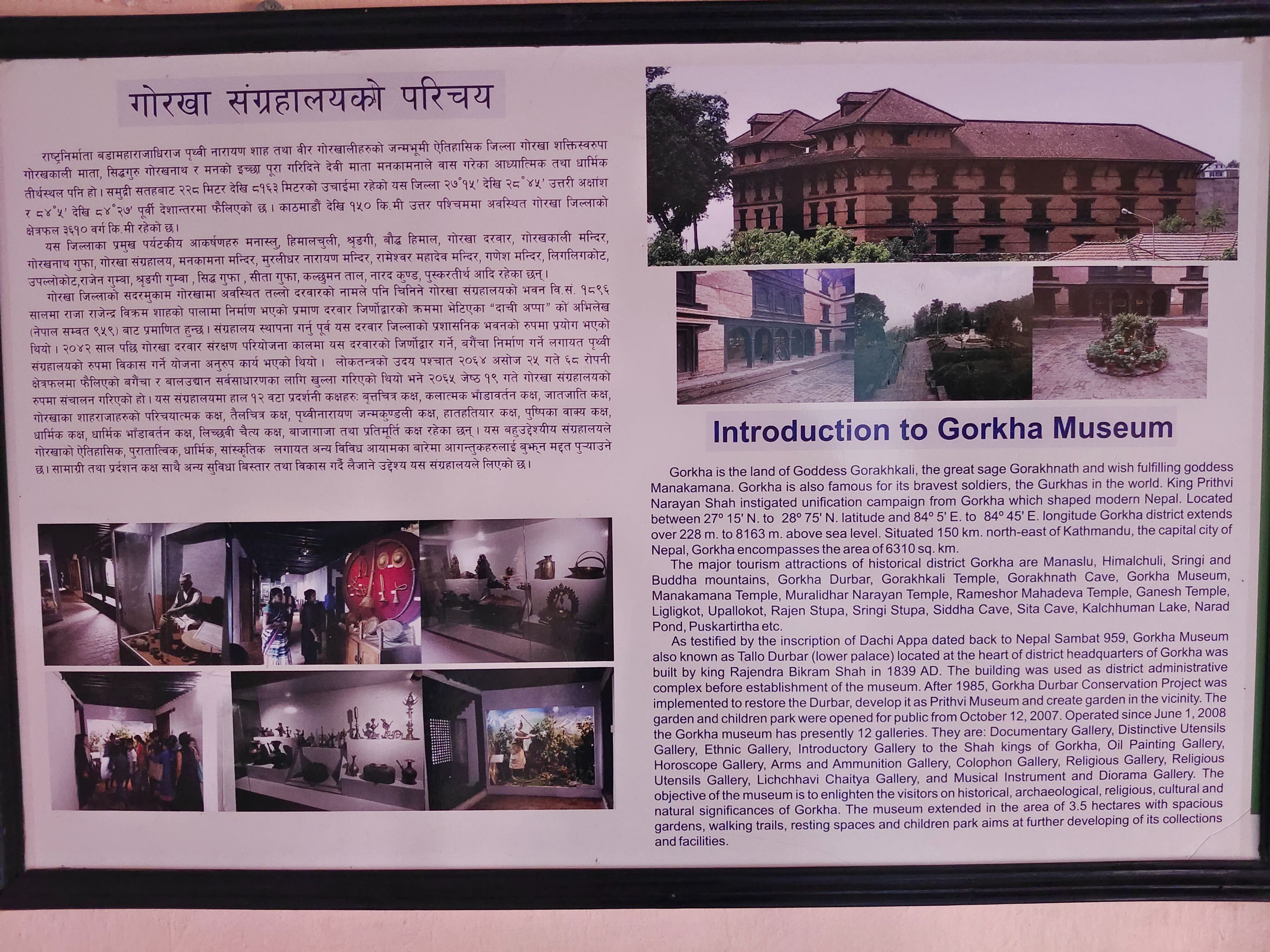
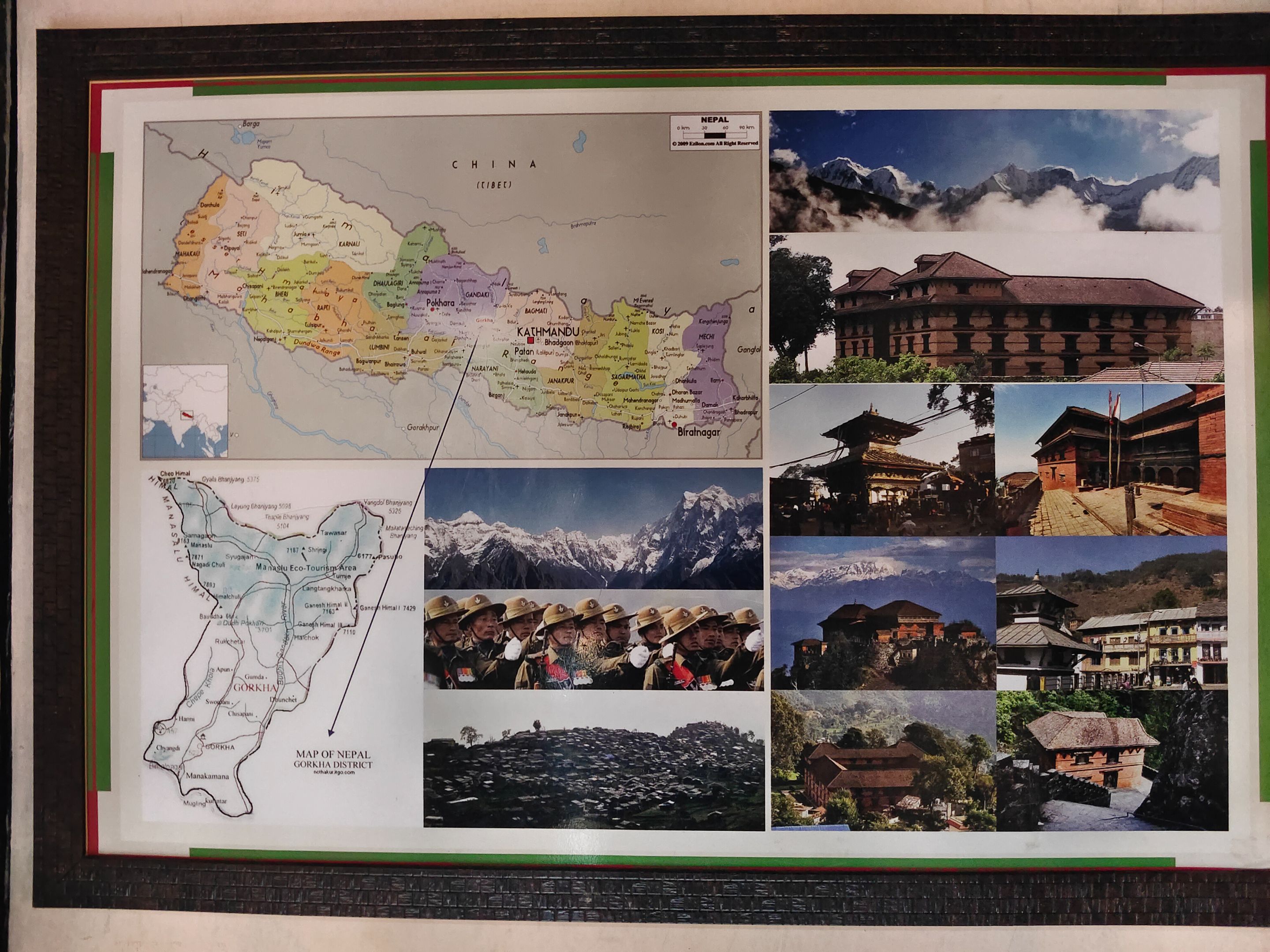
The museum is really interesting as it's consistet of different fields, alltogether 12 sections. That was royal paintings, ancient music instruments, ancient tool and weapons, royal histroy, recreation of the palace in old times and many more.
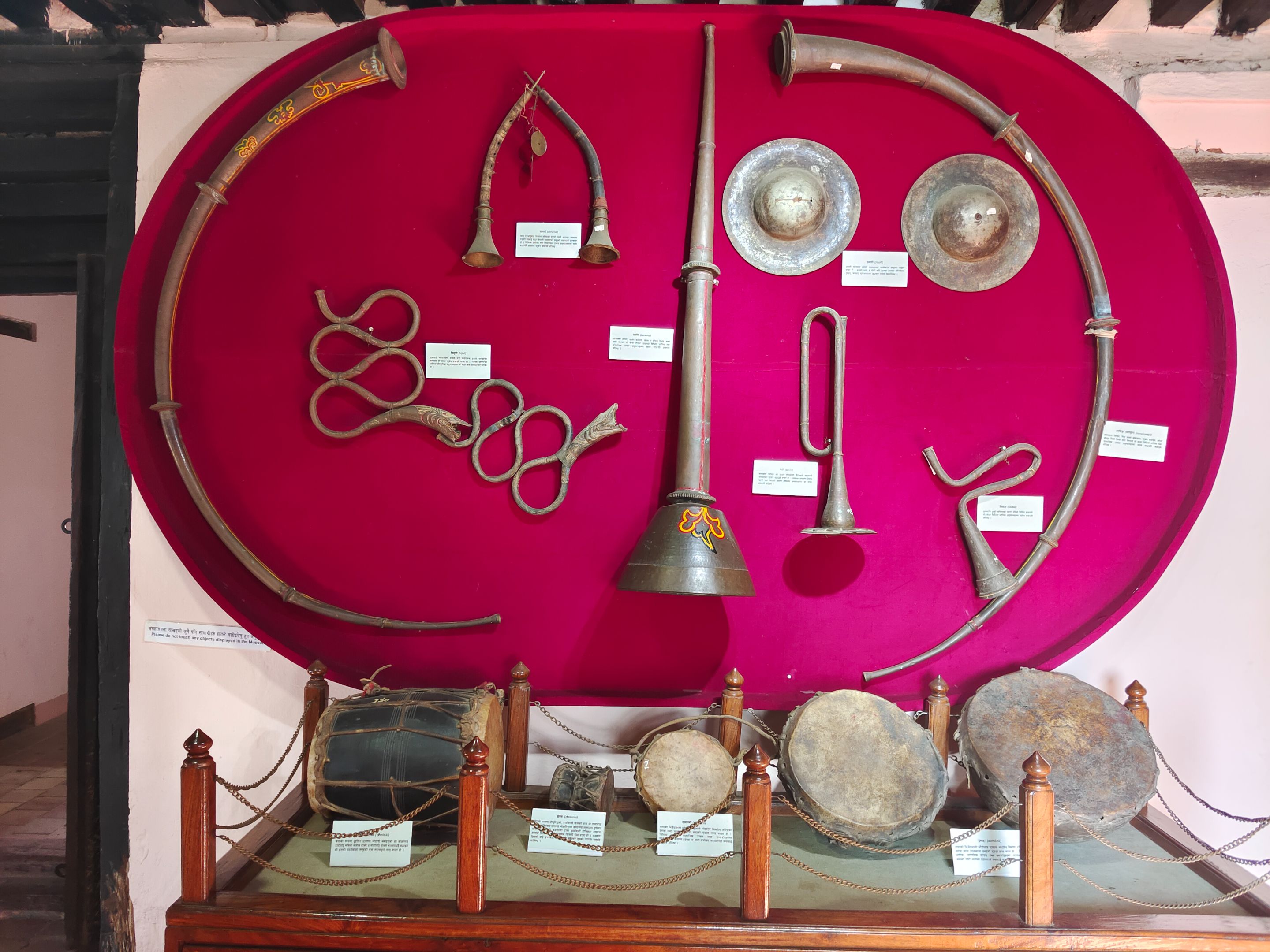
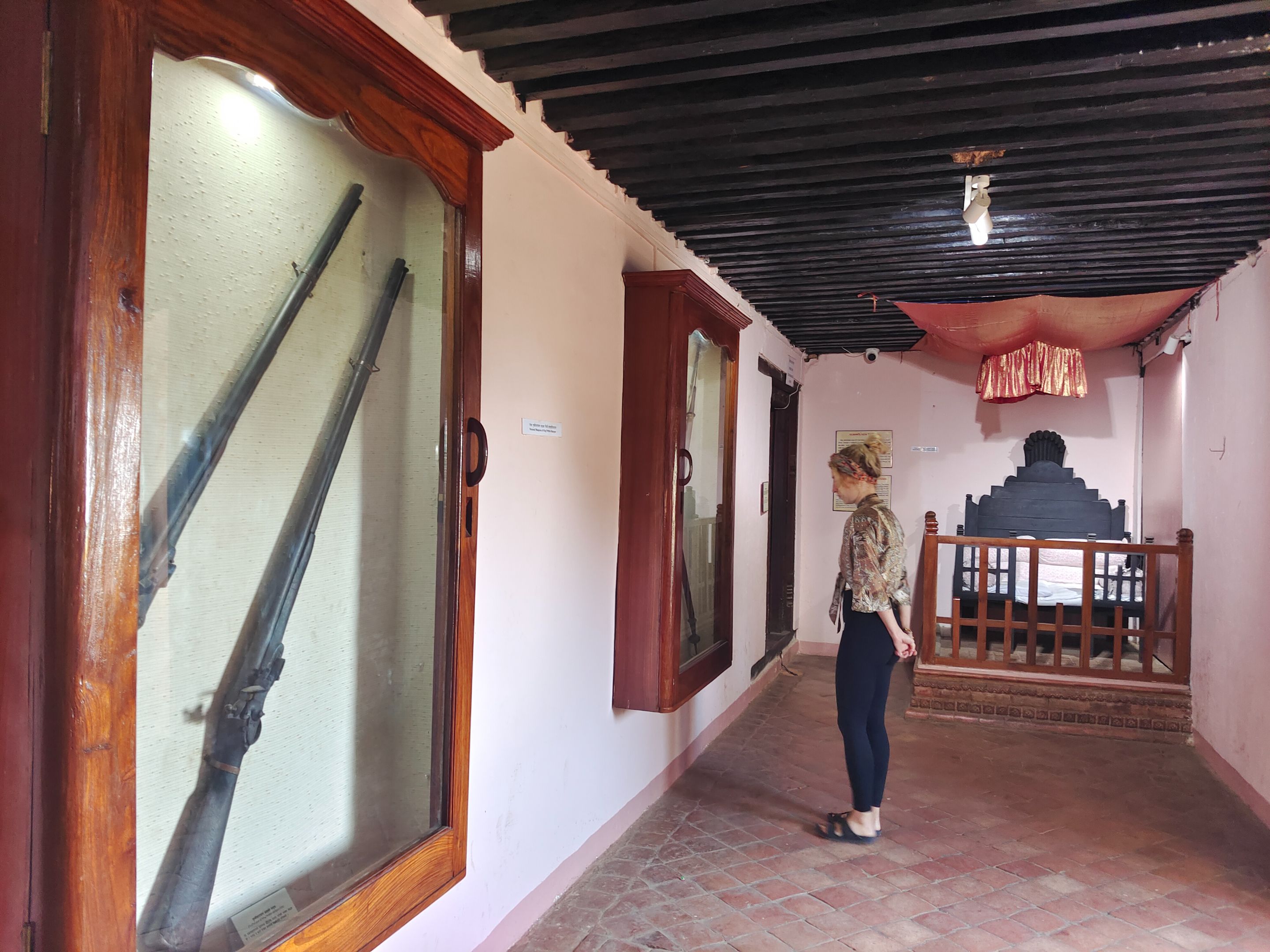
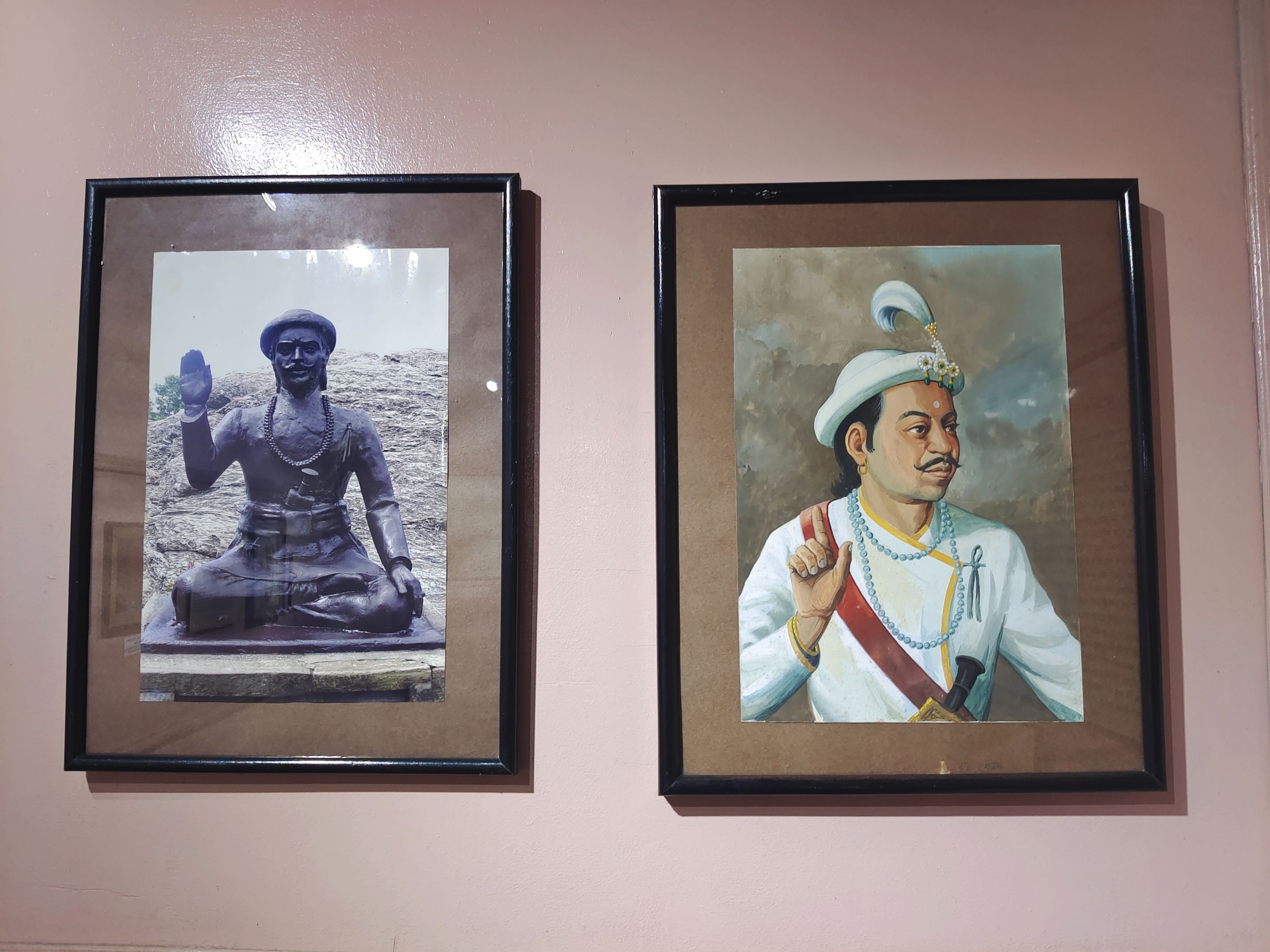
There were many rooms that were dedicated to Nepali history. Here we were the most fascinated by the description of different ethnic groups living in Nepal. People were presented in their own traditional dress and next to it it was nicely described how much is this group represented, what were they typically doing and their lifestyle and religion they follow.
The ethnic groups are: the Newars, represent 5% of the whole population and are known as good traders;
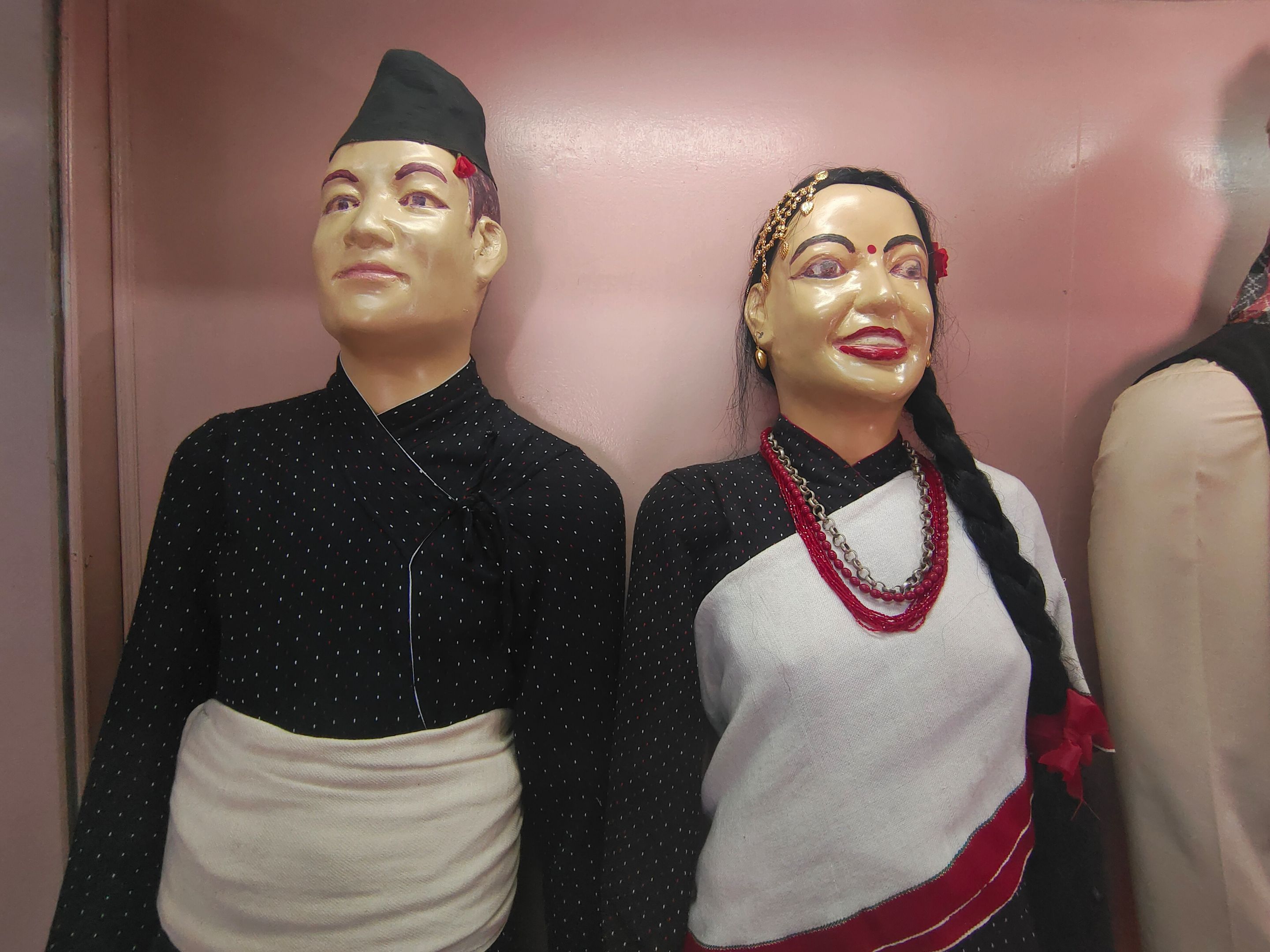
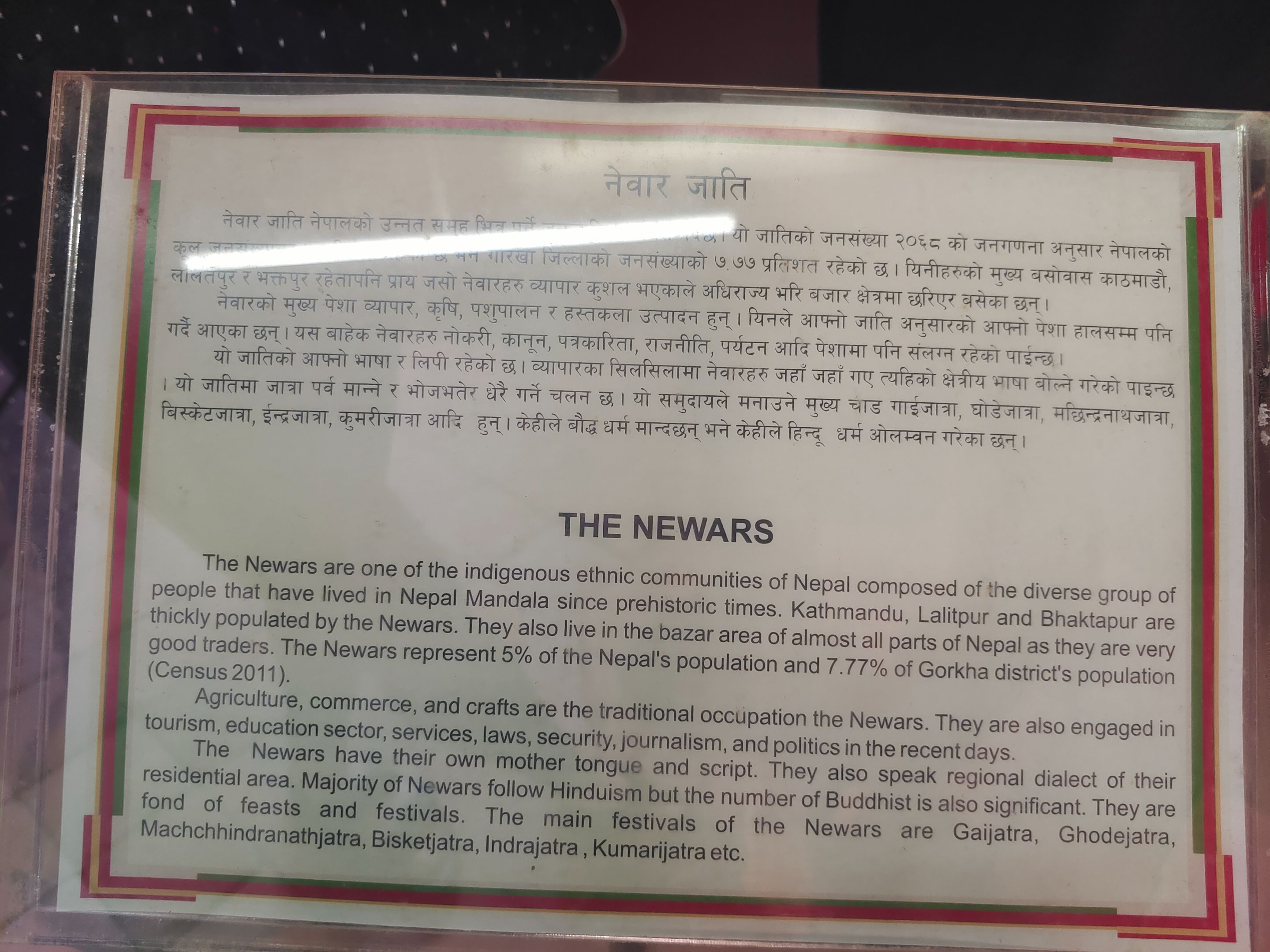
the Ghales, represent 22,8% and known for growing crops and vegetables, they follow Bon religion;
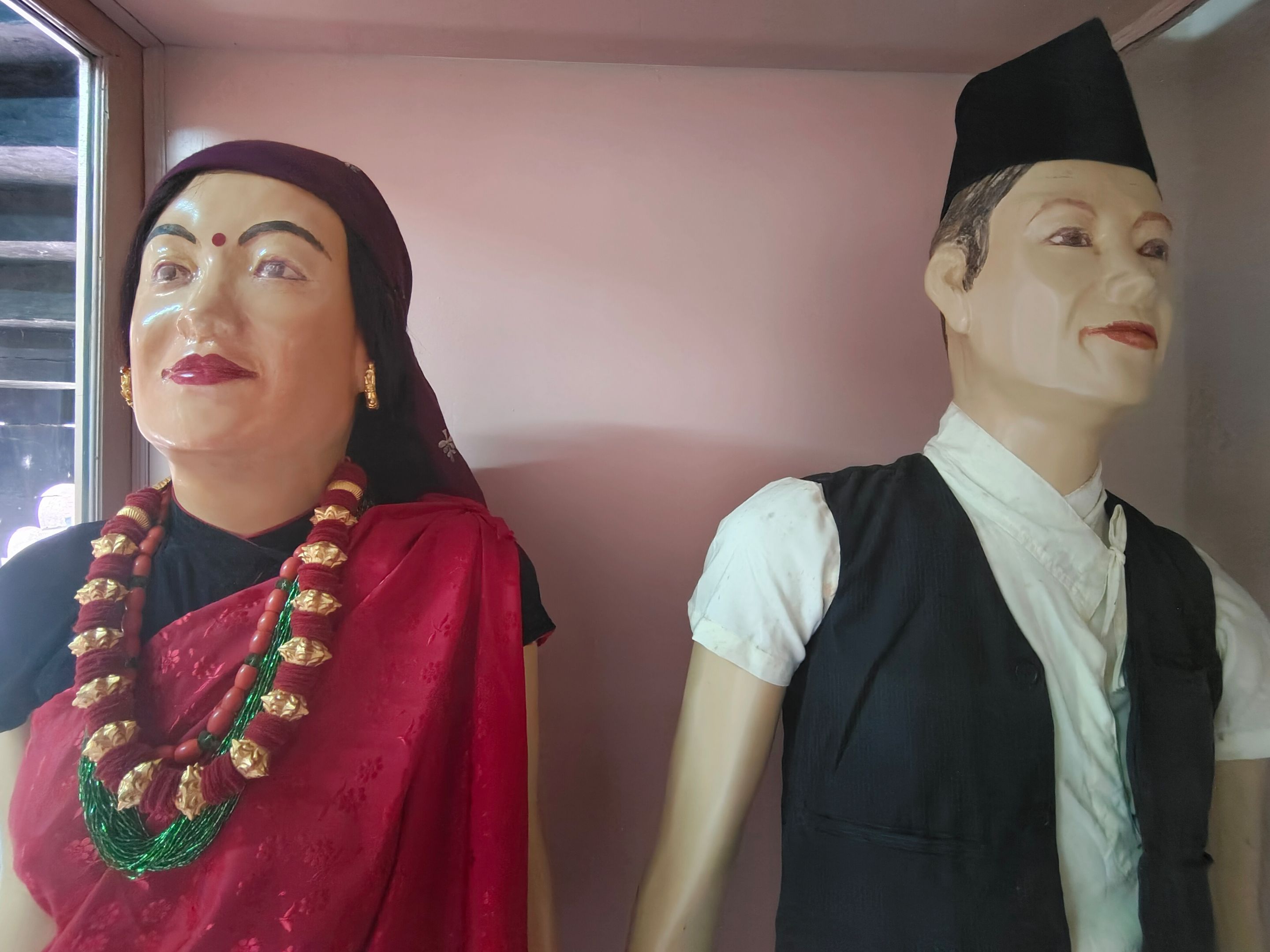
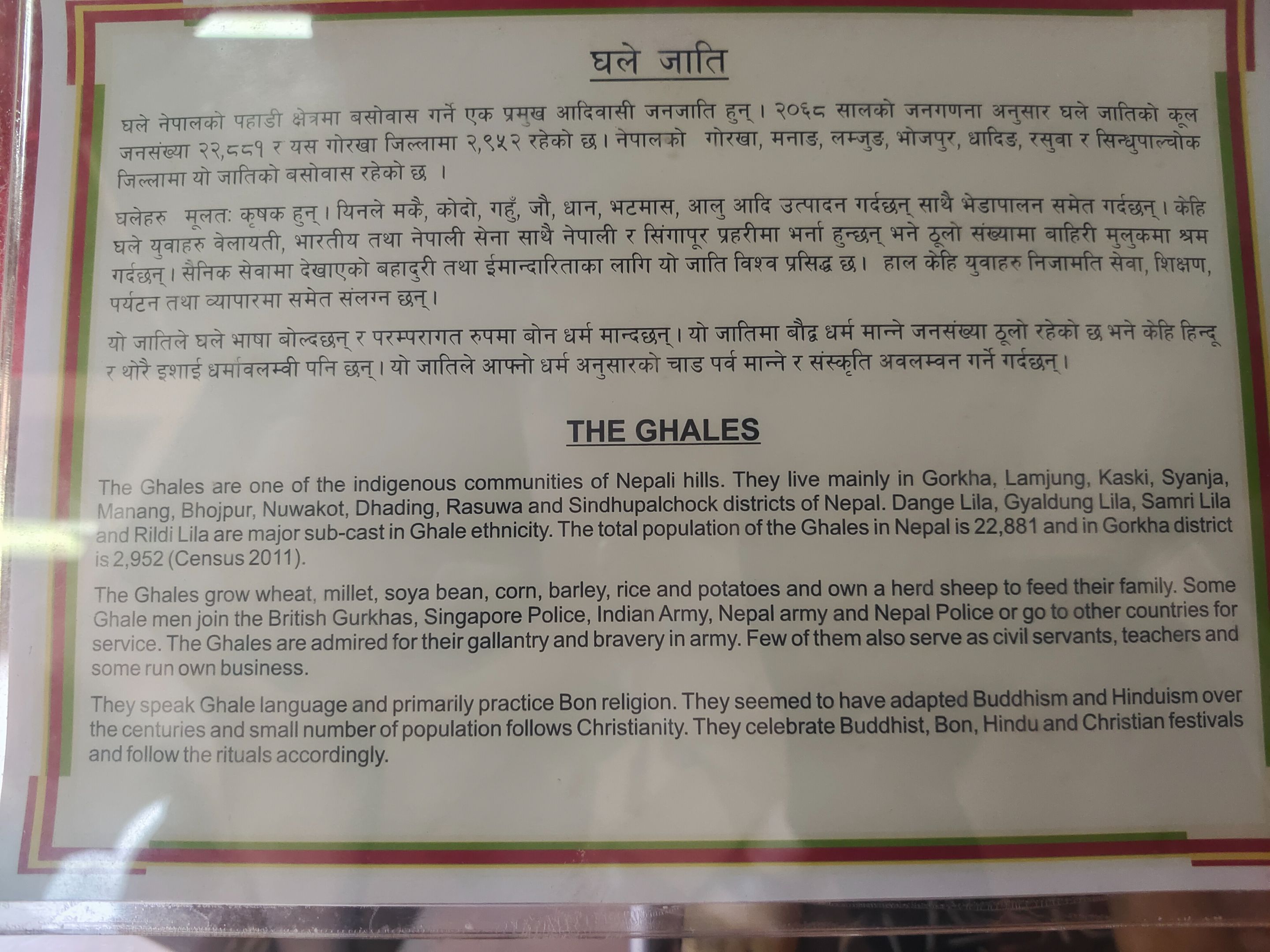
the Chhetris, represent 16,6% and are great defenders of the country;
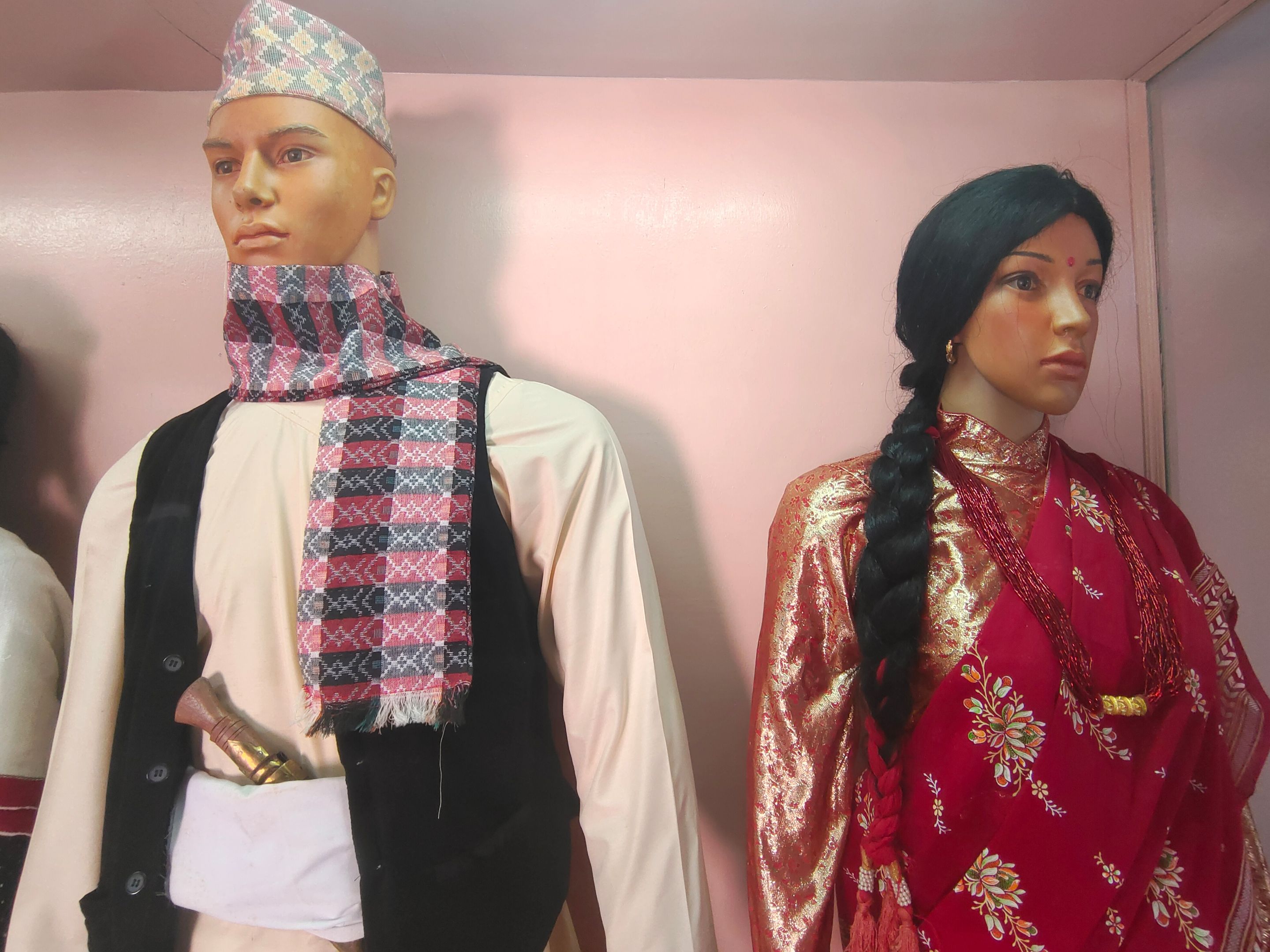
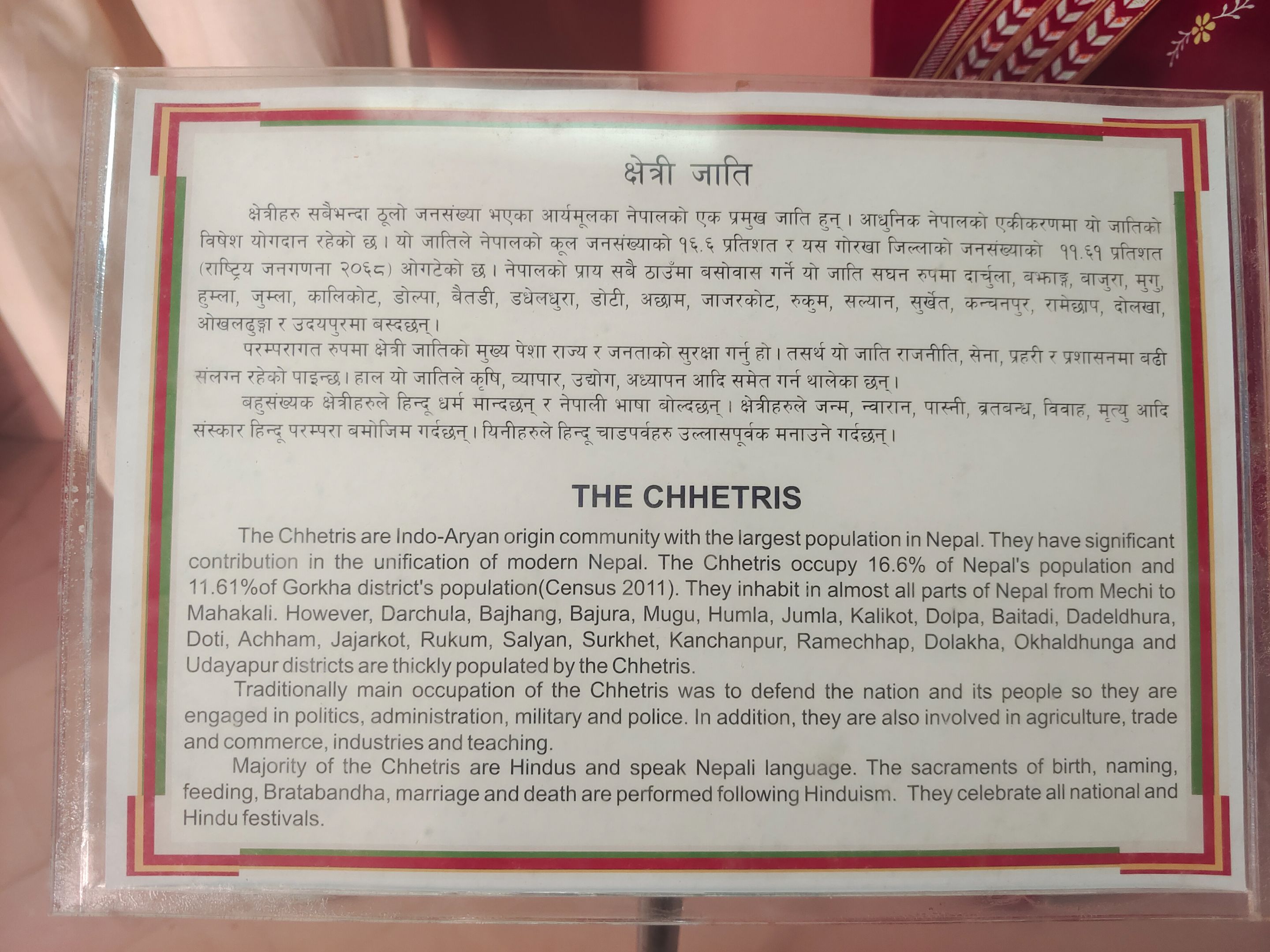
the Tamangs, represent 5,6% and are involved in agriculture and animal raising, interestingly they are known for practising shamanism;
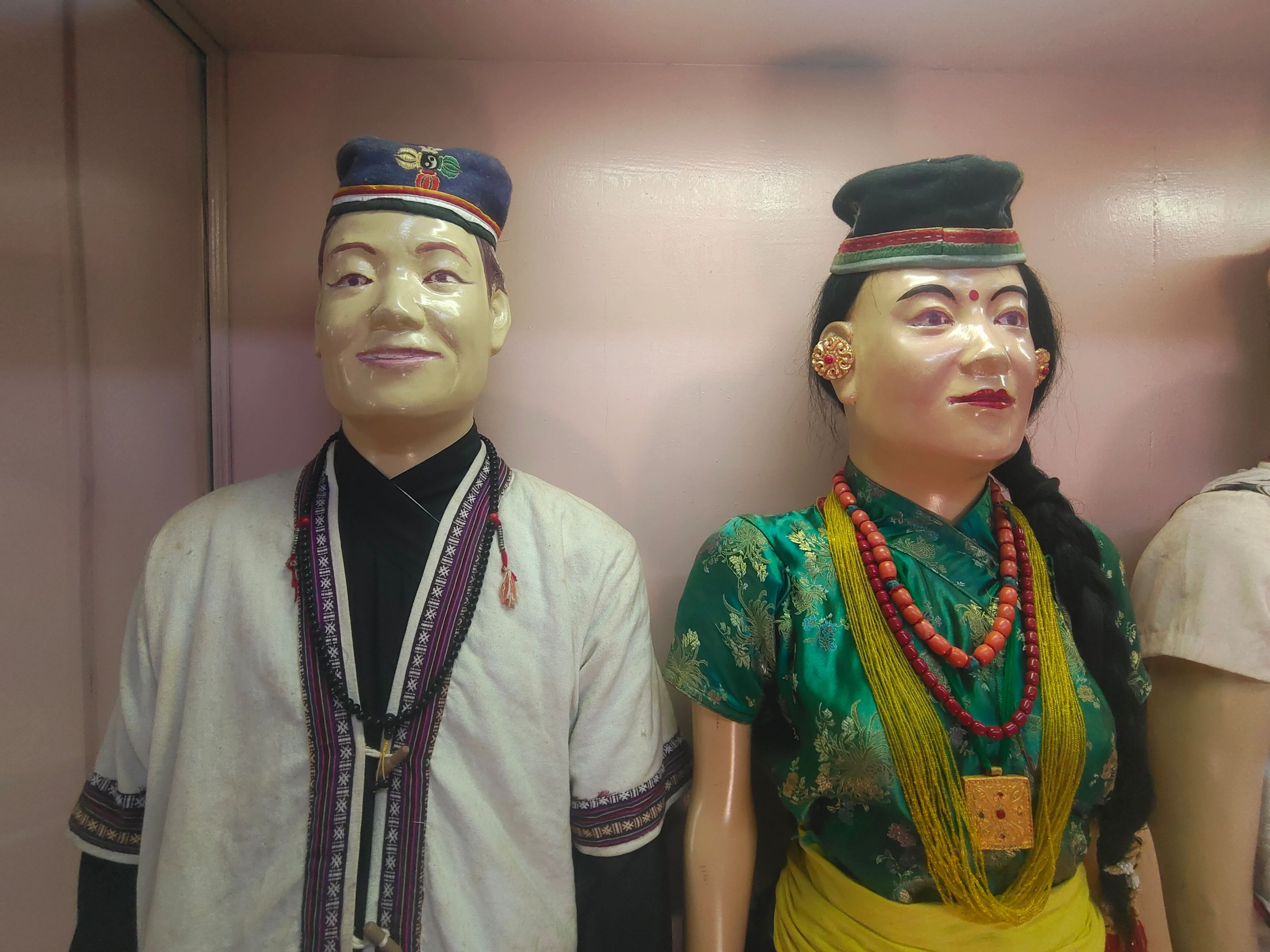
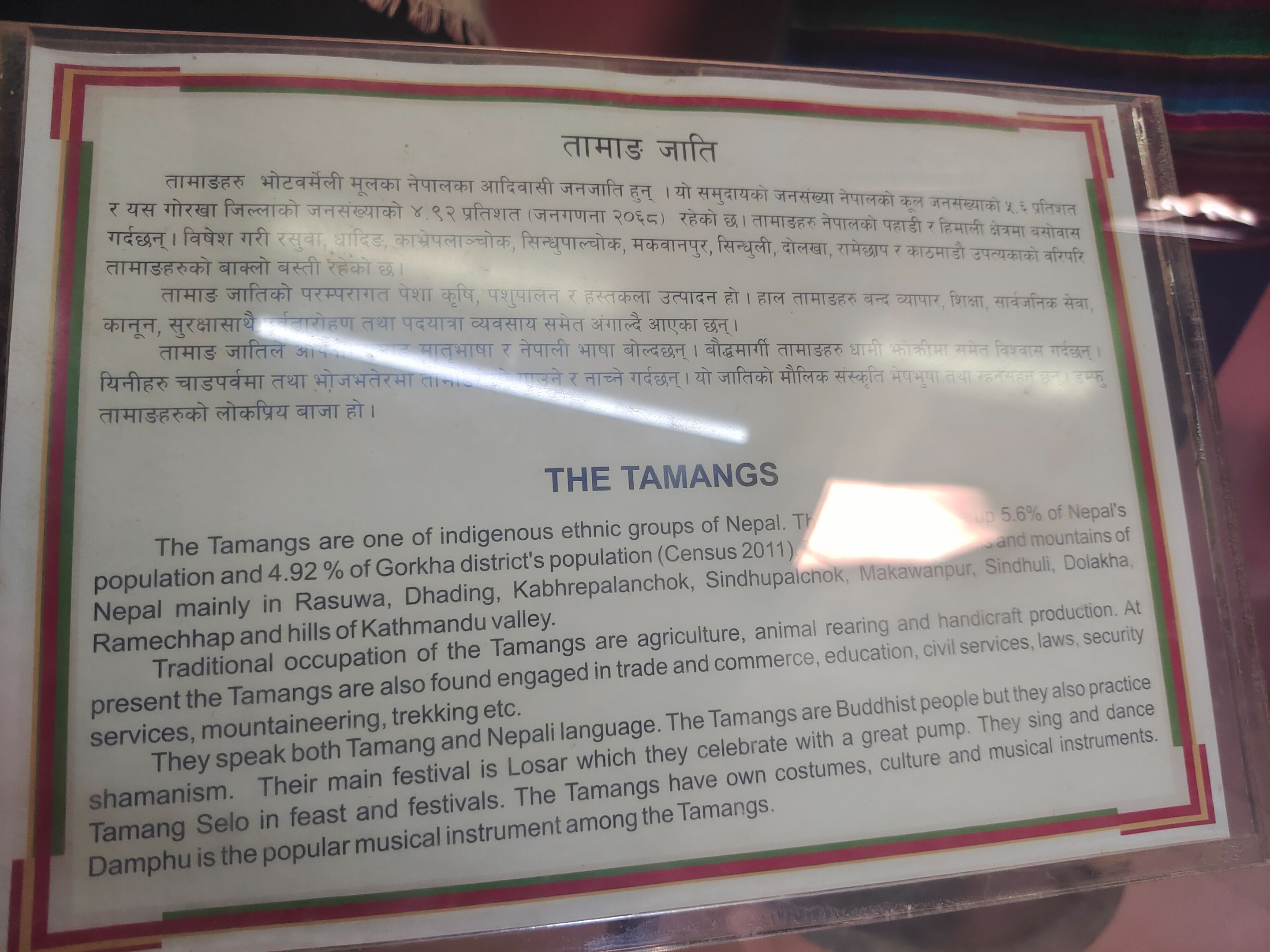
the Gurungs, represent 2,4% and are most known for sheep farming, main areas where they live is in mountain areas and Mustang;
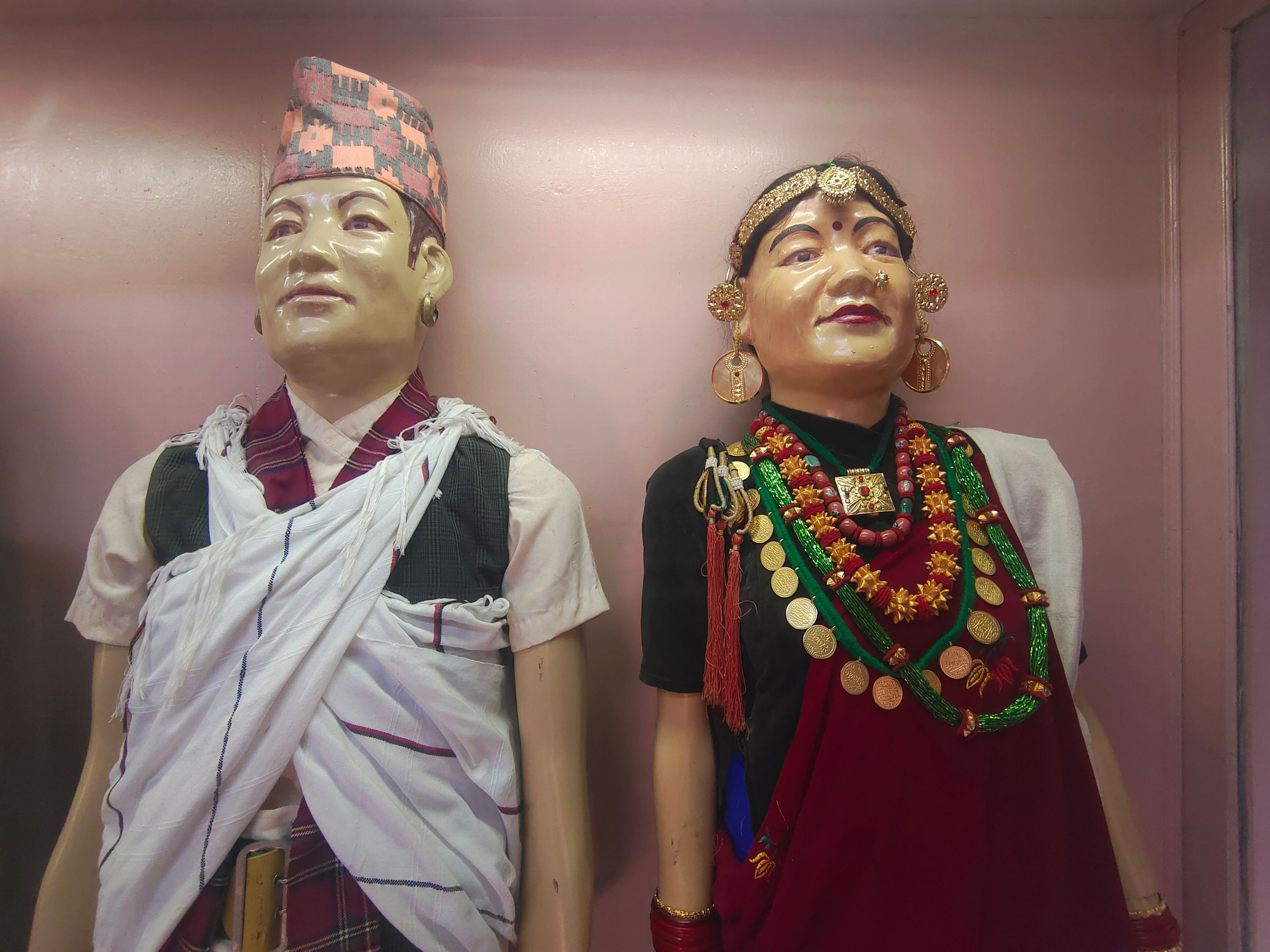
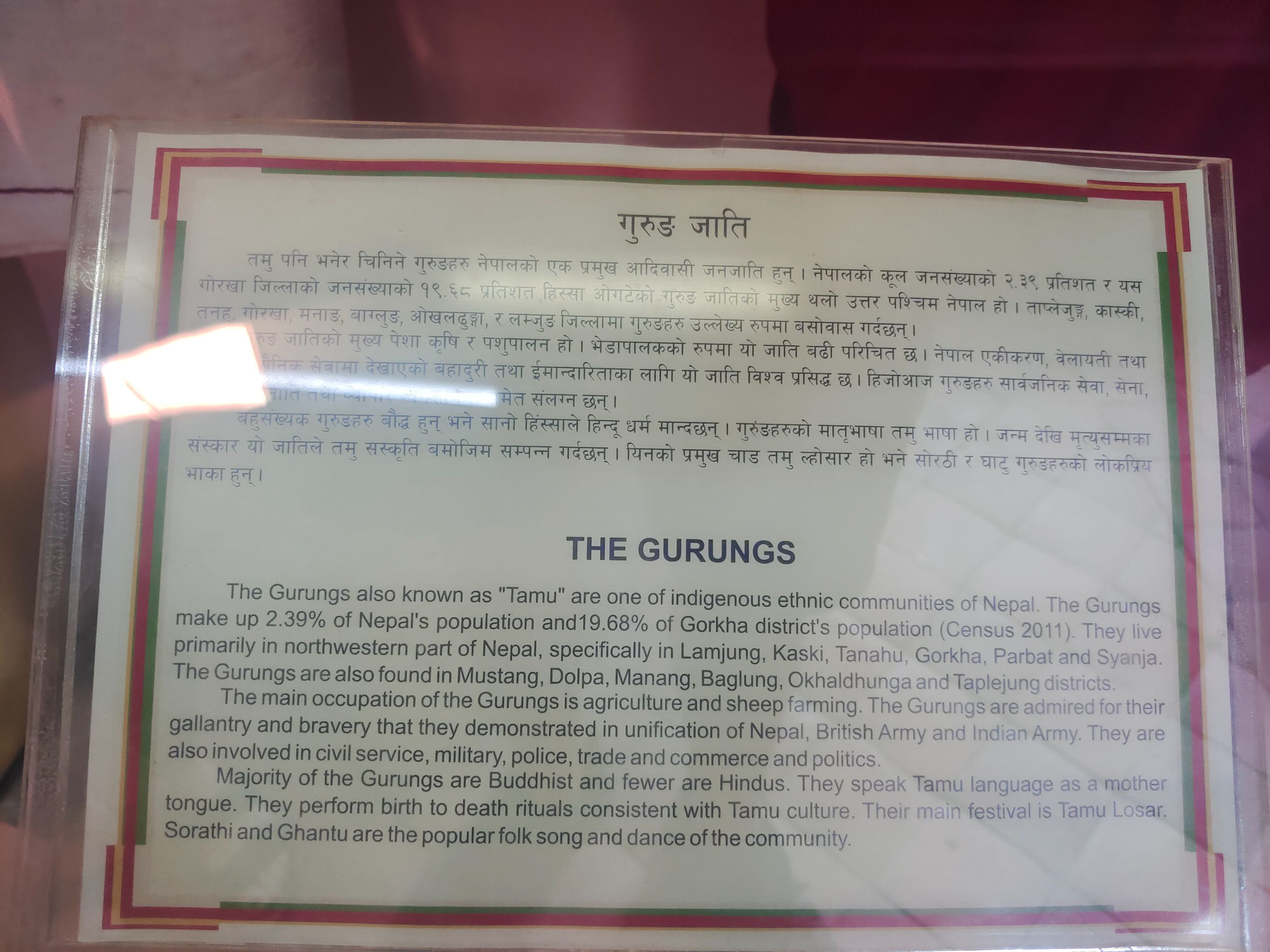
the Magars, represent 7,17% and known for being involved in military services, besides that they are good at hunting and fishing;
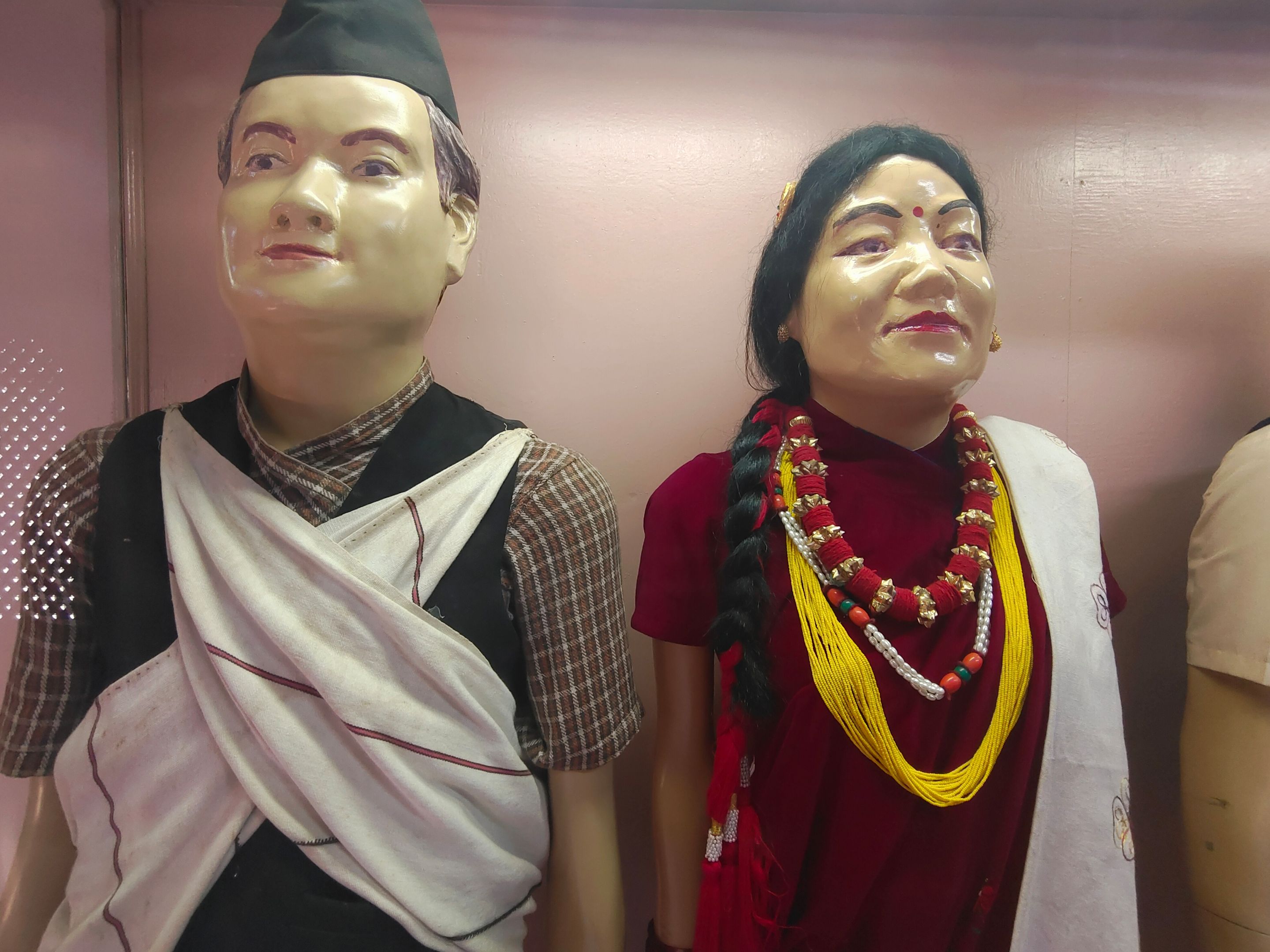
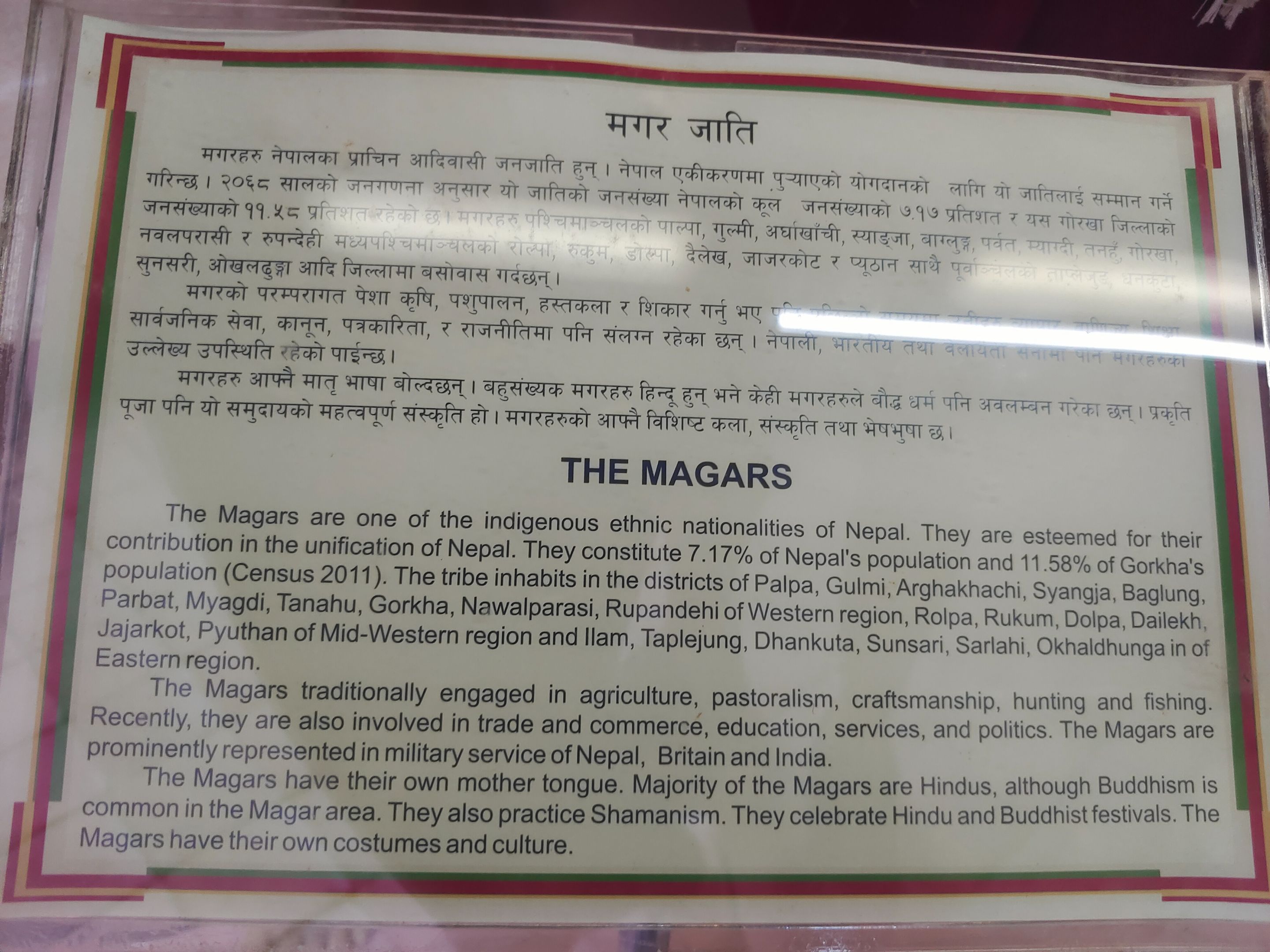
the Barams, counts only 8,140 people mostly involved in agriculture, they are animists and worship nature;
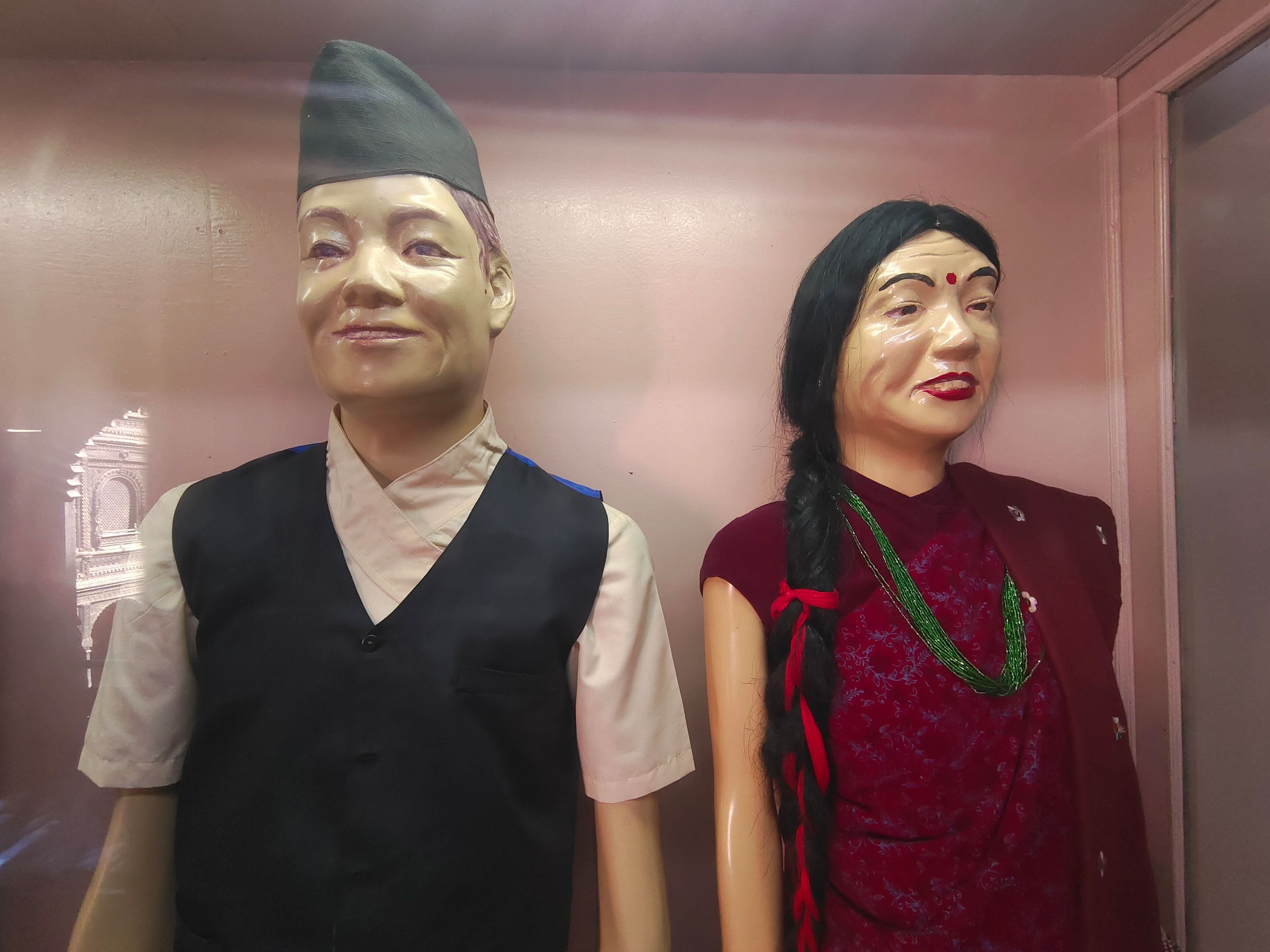
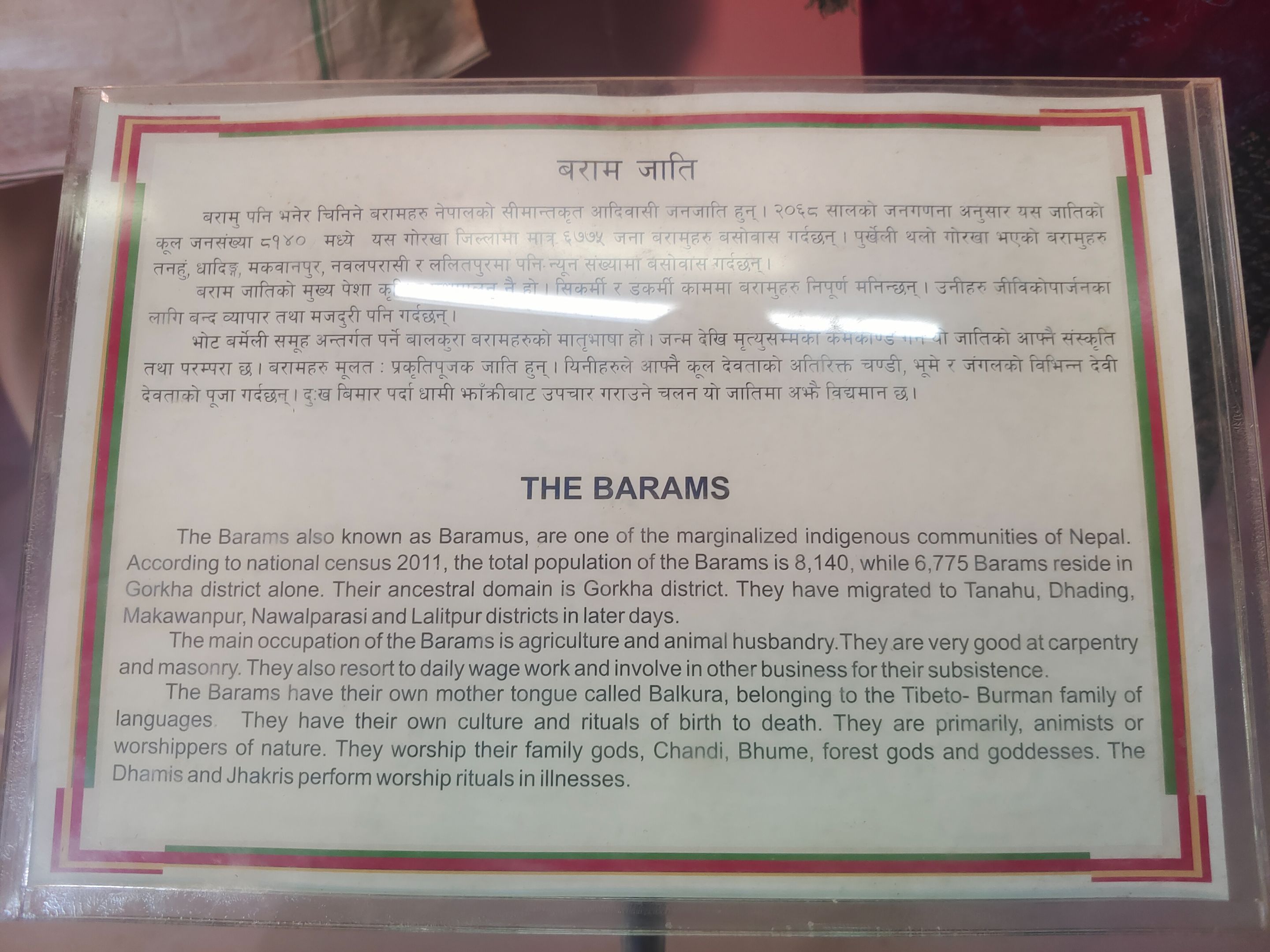
the Chepangs, consist of 52,237 people, which live primitive lifestyle in the wildest areas of Nepal, they are good at hunting animals;
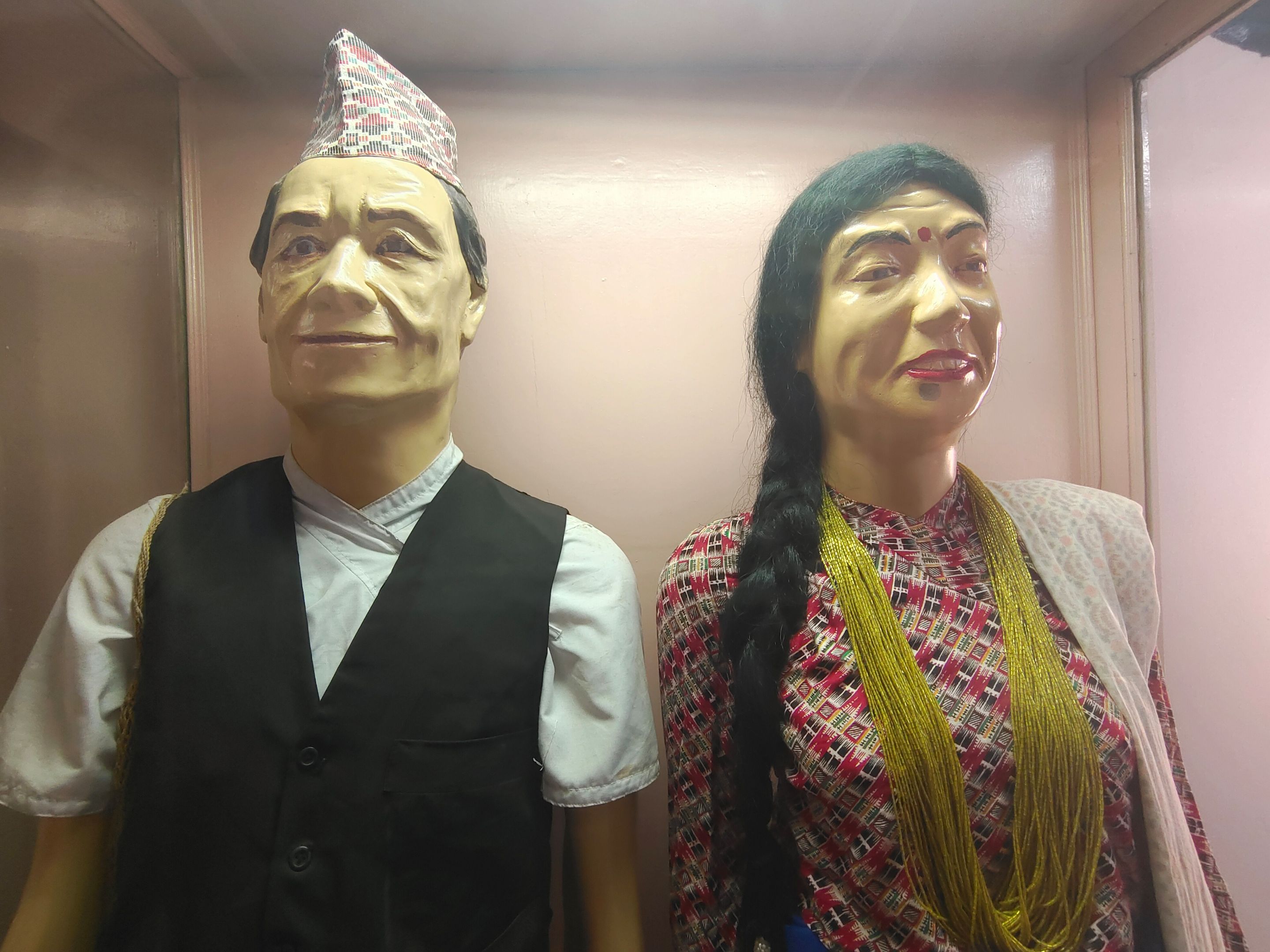
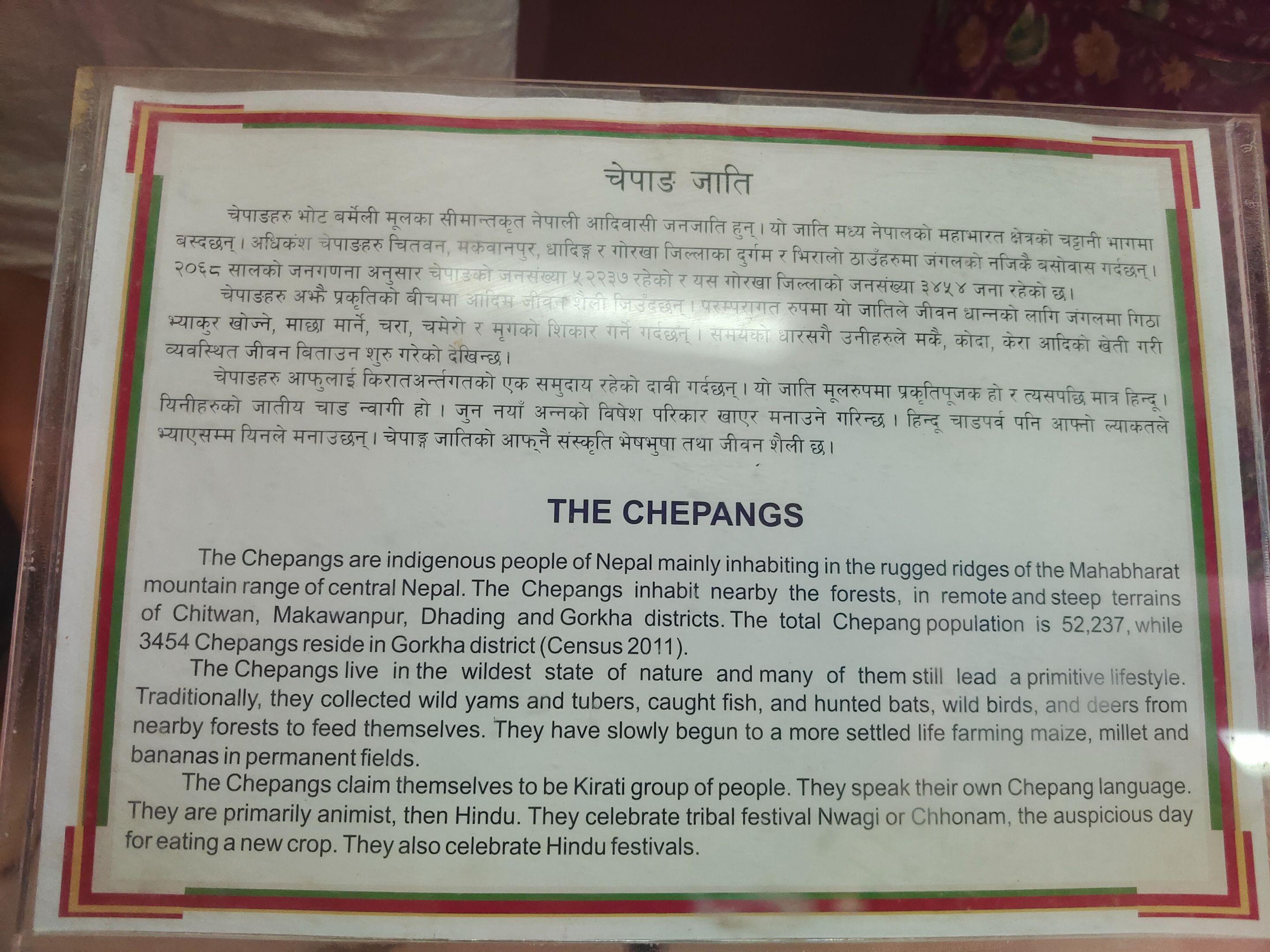
the Sherpas, represent around 0.68% of population, which is coming from high mountain regions and nowadays are most known for helping on mountain top expeditions;
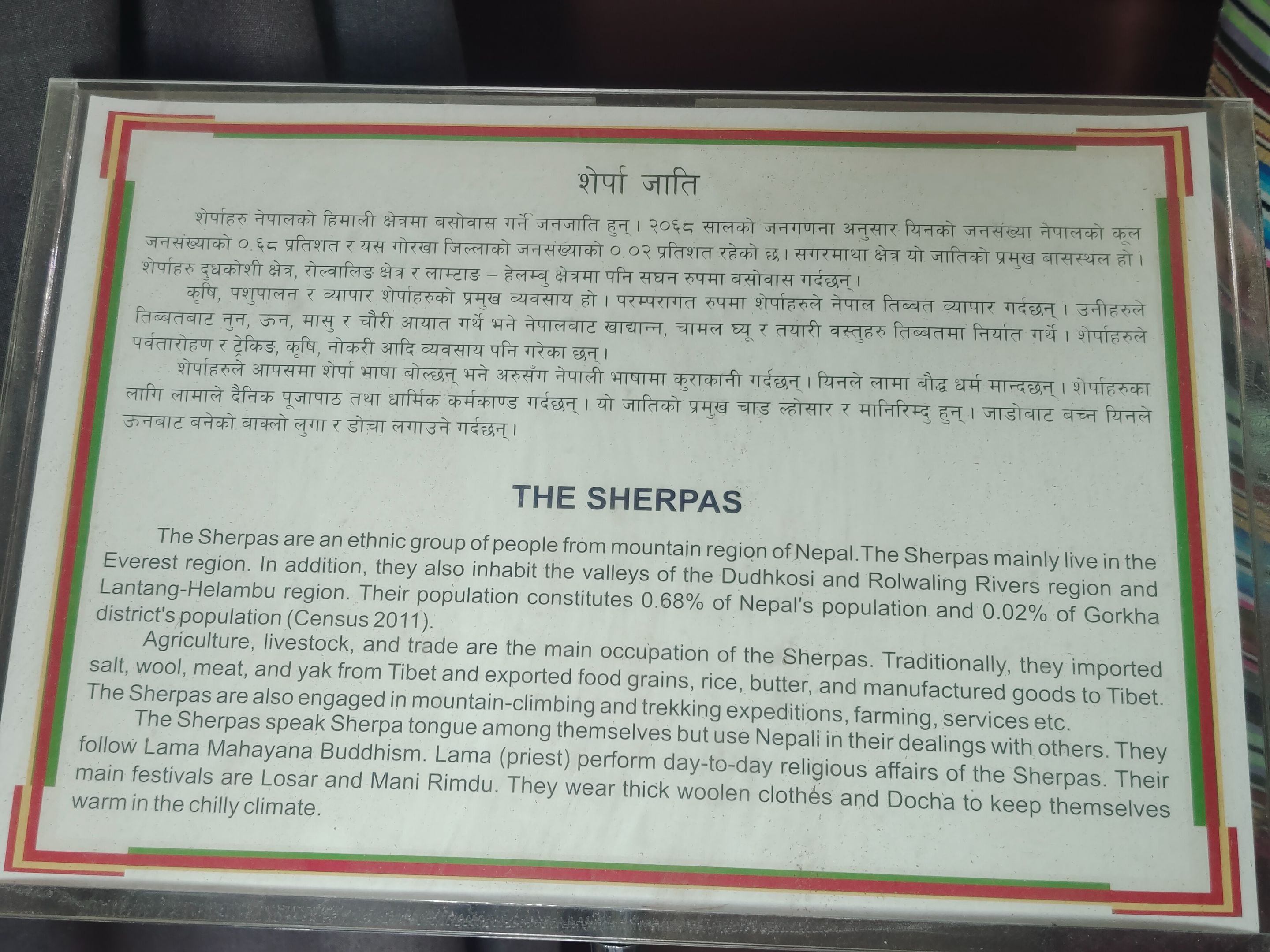
the Kamis, represent 4,8% of total population, they were mostly blacksmiths and goldsmiths;
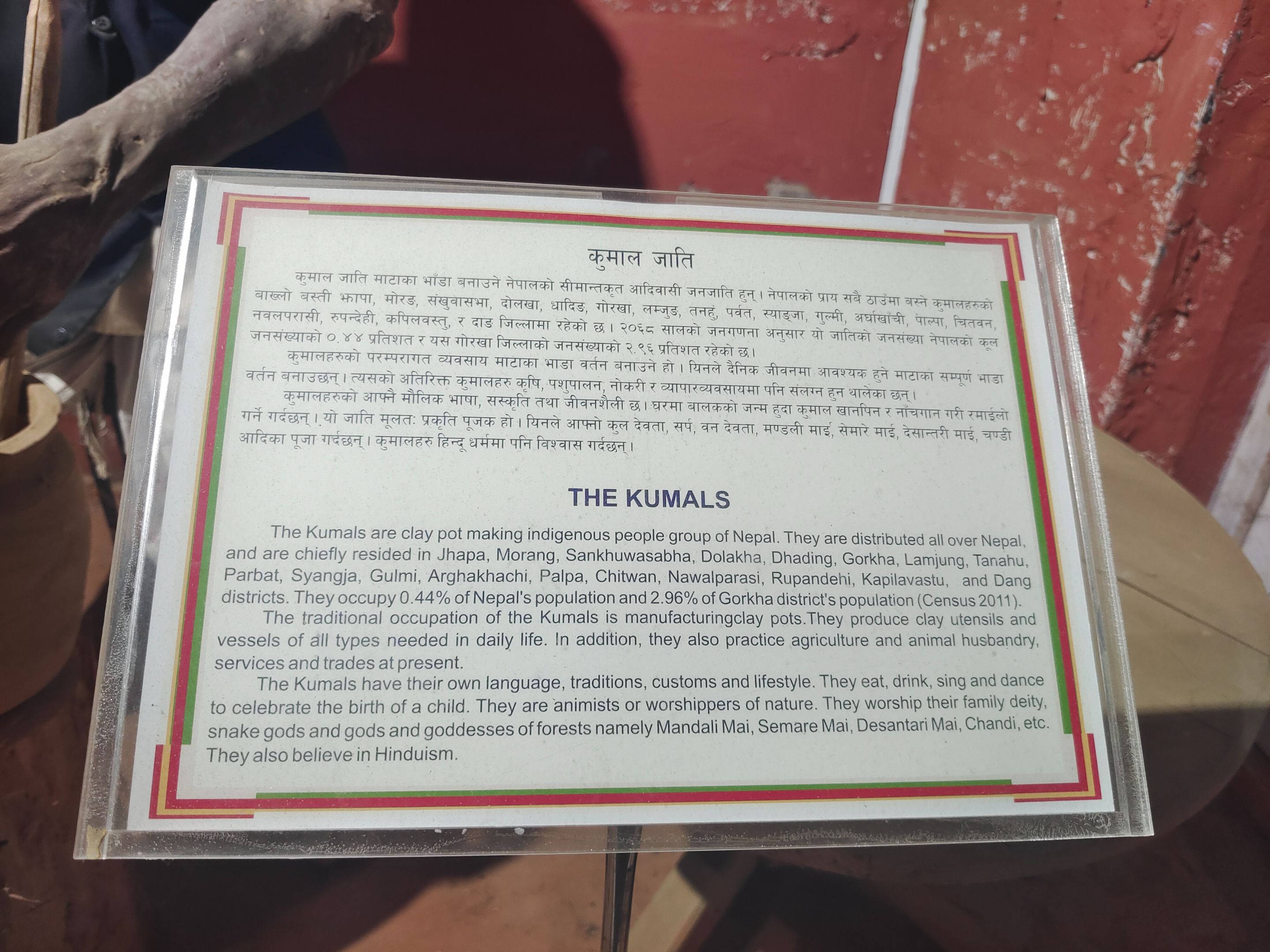
the Kumals, represent 0,44% of the population and are well know for manufacturing clay pots and other handcraft things;
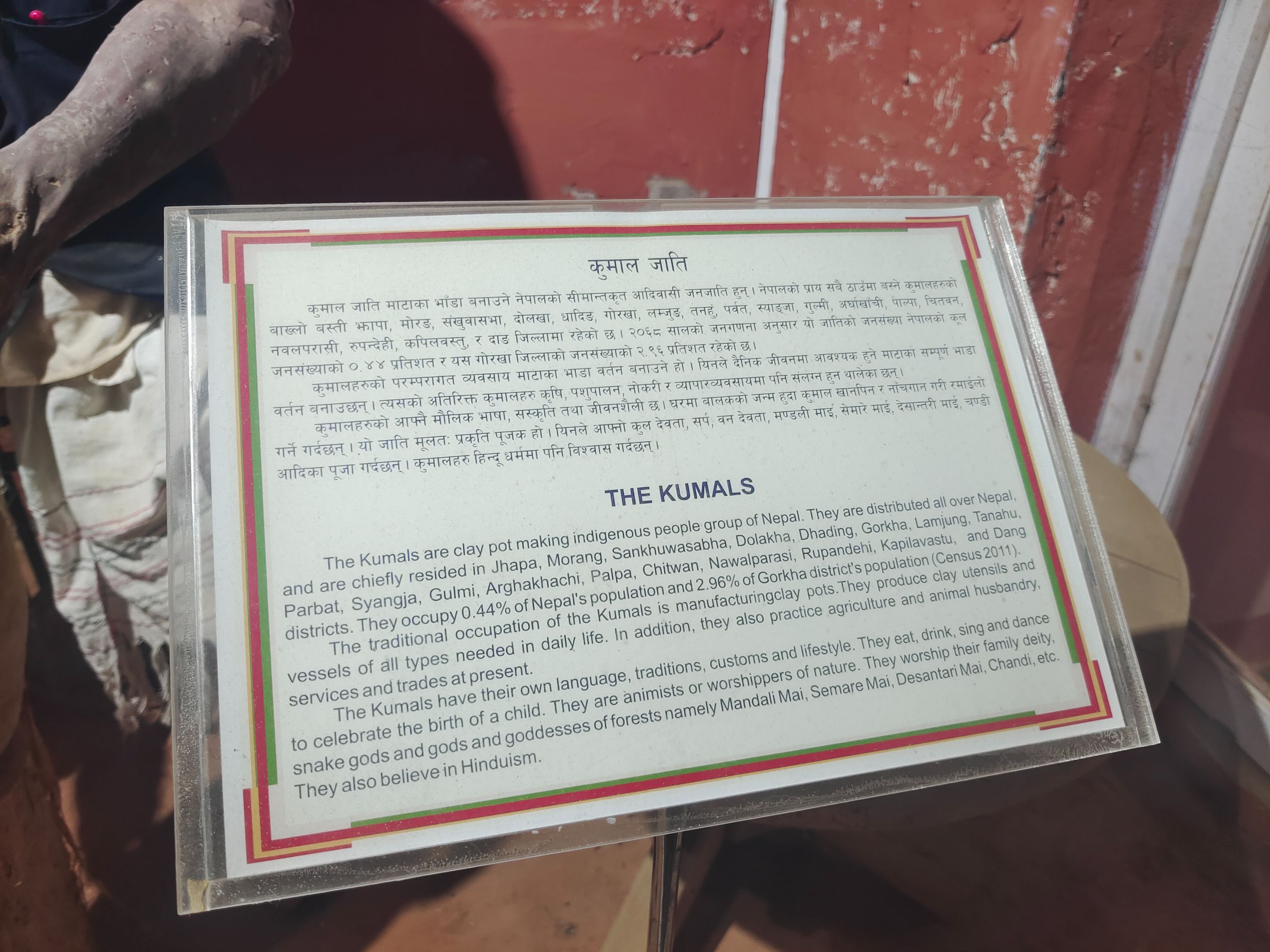
the Kusundas, consist of only 273 people and is now already quiet endangered group, they mainly were hunters and very knowledgeable of the plants and roots therefore they are nature believers.
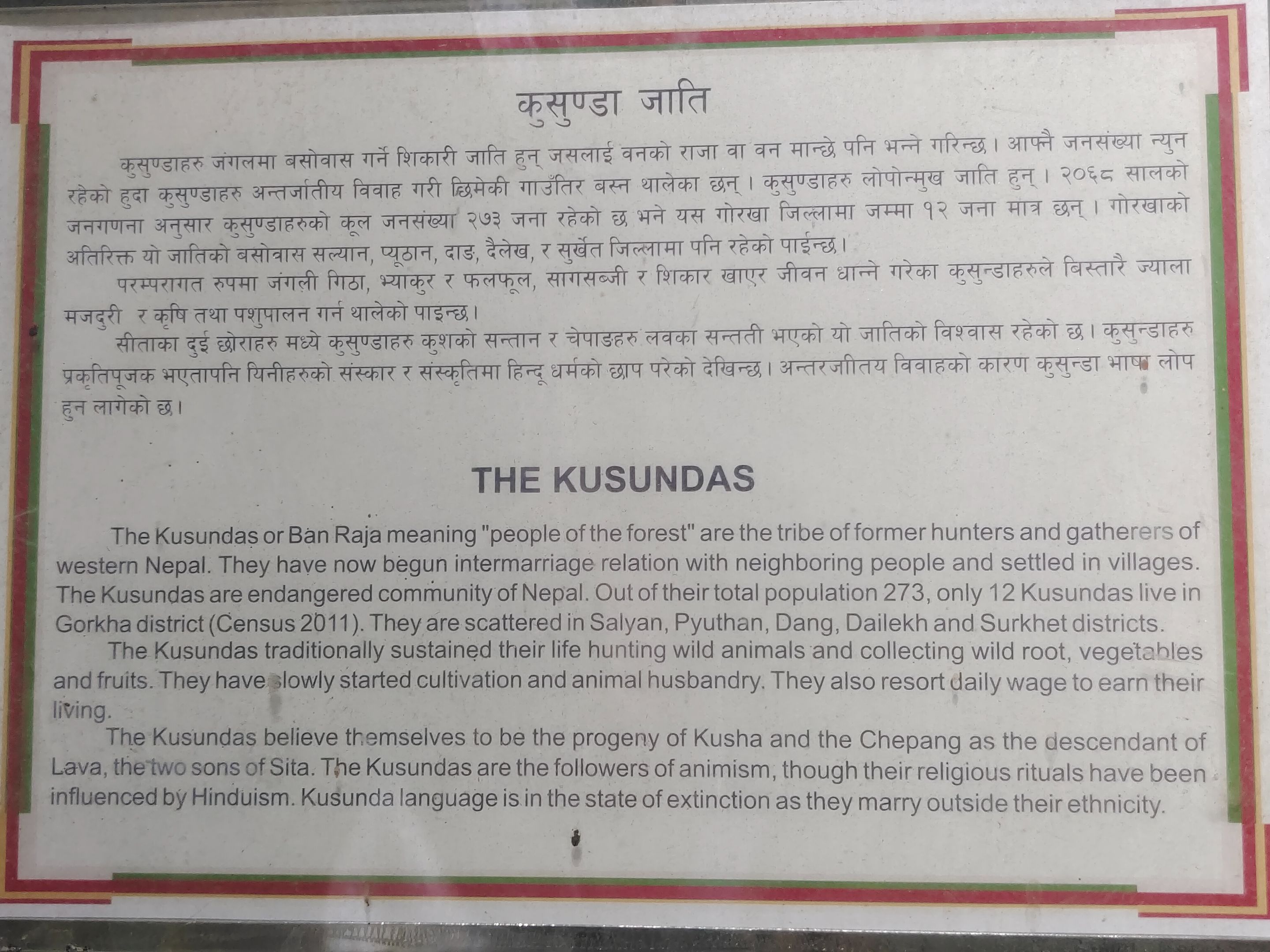
The museum holds a lot of artefacts and we really took time for exploring it properly. In there you learn many interesting facts about Nepal, therefore we really recommend you to visit it. The country is so much more than just the famous capital city, Pokhara and trekking!
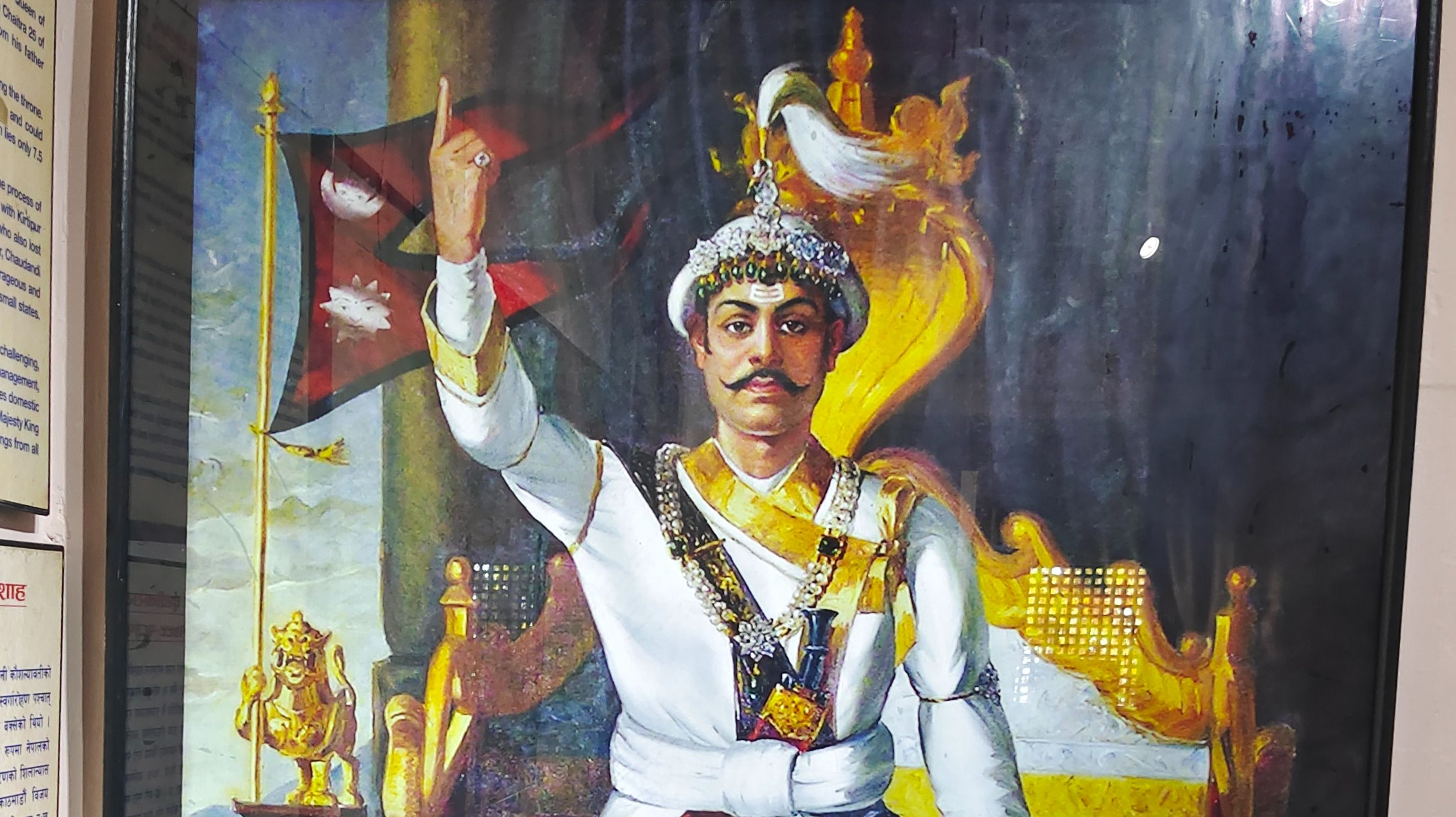
Thank you for reading. Wish you a nice day!